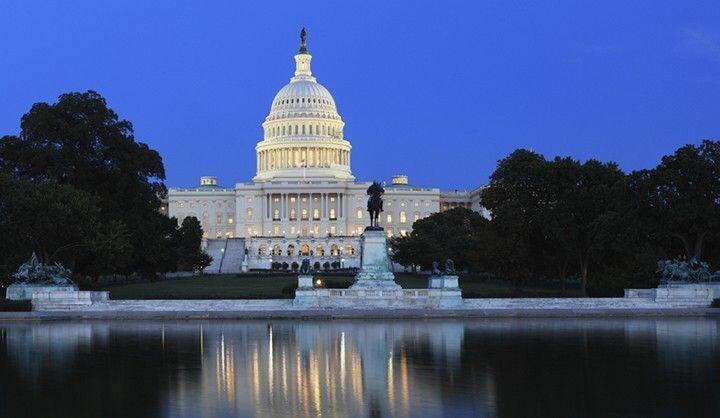- January 4, 2017
- Project on Municipal Innovation
Some schools occasionally closed in the winter because the heating systems didn’t function, and they shuttered in the summer because air conditioners broke down. Teachers didn’t get paid on time and working bathrooms and books for every student were far from guaranteed.
This was the state of affairs in the Washington D.C. public school system in the early to mid-2000s and was the first priority of Mayor Adrian Fenty’s administration when he took office in 2007. The young mayor won sweeping support and chose to cash most of it in on revamping the District’s school system.
At the 16th Convening of the Project on Municipal Innovation, held in September in Washington, D.C., Fenty expressed his belief that quality education is a vital element of urban revival and emphasized the difference a mayor can make in implementing systemic change in education.
“I started looking at it like a CEO. What is the one issue that, if we tackled it, could propel us forward? What is the issue that, if we don’t address it, will prevent us from reaching our full potential as a city? Ten out of ten times that was education. To be the best city you need the best schools.”
The two administrations prior to Fenty’s had tried to gain mayoral control of the school system to no avail. Fenty knew he had to act fast and he did. He told the members of PMI that he used “every political chip” he had from the election to get a majority of city council votes in favor of mayoral control.
Within four months, a bill granting him mayoral control was passed and Fenty’s plan was in motion. He directed all of the relevant departments in the District to be on-call for whatever the school system needed. Teachers and administrators no longer had to organize IT services, assign security officers their daily duties, or craft school bus routes. Finally, educators could focus on their classrooms.
Kaya Henderson, former chancellor of the D.C. public school system, and then-deputy chancellor, was unequivocal that the kind of overhaul that led to graduation rates rising from 53 percent to 69 percent across the District would not have been possible without Fenty gaining mayoral control of the system.
“The key is and was mayoral control,” Henderson said while sitting alongside Fenty at PMI. “He provided the bully pulpit, the political cover...He said to the other agencies, ‘schools are number one, you cannot say no to the Chancellor.’”
The District outsourced its food service contract, had the police department handle security officers, the Department of Mental Health manage school nurses, and the technology department service school computers and software. This reorganization facilitated the refocusing of educators and administrators on student success.
Perhaps the most significant achievement of Fenty’s tenure as mayor in control of the school system was his negotiation with the District’s teachers union. He had a vision for a merit-based system that would incentivize quality education and filter out underperforming teachers that remained in the system mainly because of tenure.
With an education-first agenda and a bill in motion that gave him mayoral control of the system, Fenty proposed an aggressive but holistic solution; “The whole strategy was to offer a carrot, not a stick...instead of castigating the teachers union, we said, ‘We know you’re underpaid, and we know that it is a significant issue to hire and retain.’ We decided to offer a significant amount more money.”
After about two years of negotiation, Fenty’s changes resulted in the highest base salary for teachers in the country at $52,000 annually and the rooting out of the lowest performing teachers, Henderson said. The elevated level of instruction had direct results in the classroom: enrollment rose after 40 years of consistent decline, about a dozen AP exams were offered at every District high school, and parents were engaging with officials instead of chastising them at community meetings.
“When kids come home and say their teachers are better, and they want to extend the school day because just when it gets fun the bell rings,” Henderson said, “then parents will do whatever you need to get things happening differently in those classrooms and in their lives.”
The recommendation that Fenty passed on to the chiefs of staff and senior advisors was clear and direct. There are actions that only a mayor can invoke like assigning departments to be on call for the superintendent or chancellor. A mayor can provide the political ammunition to have complex but effective negotiations with teachers unions that facilitate the delivery of better education, even for a school systems in the direst shape.


 Eric Bosco is a Research Assistant and Writer for the Ash Center’s Civic Analytics Network. Prior to joining the Ash Center, Eric worked as a journalist and research assistant with the Boston Globe Spotlight Team and as a staff writer at a regional newspaper in southern Massachusetts. As an undergraduate journalism student at the University of Massachusetts Amherst, his investigative reporting for the Globe on the university’s controversial confidential informant program earned him appearances on national television and radio.
Eric Bosco is a Research Assistant and Writer for the Ash Center’s Civic Analytics Network. Prior to joining the Ash Center, Eric worked as a journalist and research assistant with the Boston Globe Spotlight Team and as a staff writer at a regional newspaper in southern Massachusetts. As an undergraduate journalism student at the University of Massachusetts Amherst, his investigative reporting for the Globe on the university’s controversial confidential informant program earned him appearances on national television and radio.


